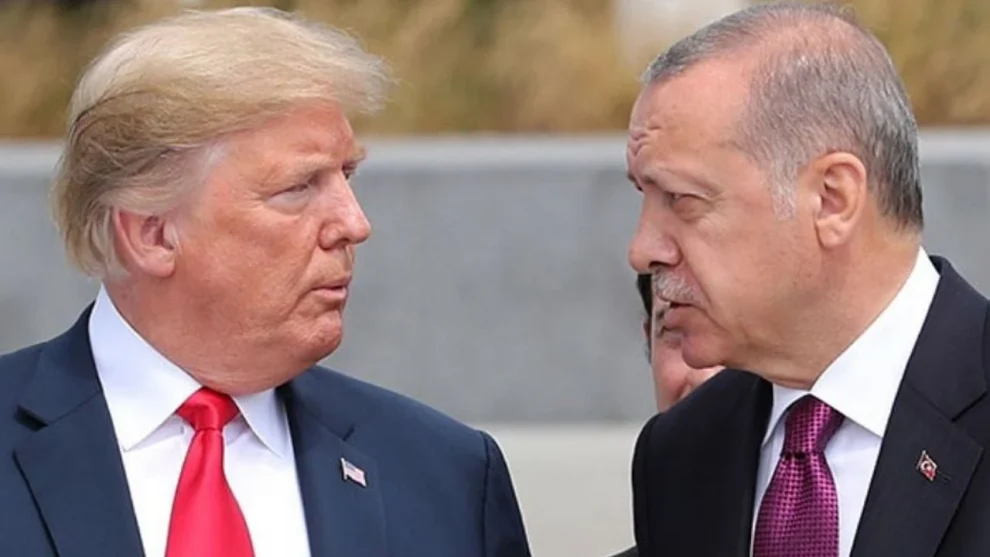Donald Trump’s re-election may intensify unresolved issues between the US and Turkey, particularly around defense, regional policy, and economic sanctions, posing significant challenges to the bilateral relationship.
If Donald Trump is re-elected, Turkey-US relations could face considerable strain, with recurring issues like the S-400 defense system, divergent interests in Syria, and conflicting approaches to Iran expected to remain key points of tension. Trump’s reliance on personal diplomacy might delay resolution of these structural challenges, while increased anti-Turkey lobbying within the US Congress and Trump’s critiques of NATO could add pressure on Turkey’s position in the alliance. Furthermore, intensified sanctions or criticisms could fuel anti-American sentiment within Turkey, further complicating diplomatic and public relations. The overall impact may lead to a challenging period for Turkey-US relations, marked by persistent disagreements in defense, security, and foreign policy.
Donald Trump’s re-election as US president could bring several challenges to Turkey-US relations. His foreign policy approach, which is highly personal and pragmatic but often unpredictable, could create security and diplomatic obstacles for Turkey. This strategy, which frequently diverges from traditional US foreign policy frameworks, may make it difficult to address underlying issues in the Turkey-US relationship. Below, we examine potential negative effects on Turkey-US relations should Trump secure a second term.
S-400 and Sanctions: Persistent Security and Defense Conflicts
Turkey’s purchase of the Russian S-400 air defense system remains a significant point of contention between Turkey and the US. Although Trump initially resisted imposing sanctions on Turkey under the Countering America’s Adversaries Through Sanctions Act (CAATSA), he faced substantial pressure from Congress to act. If Trump is re-elected without a resolution to the S-400 issue, sanctions threats will likely persist, potentially affecting Turkey’s security relationship with the US, as seen in its removal from the F-35 program. Relying on Trump’s personal diplomacy alone might mask but not resolve these deeper structural problems.
Syria and Middle East Policy: Divergent Interests and Regional Tensions
The US and Turkey continue to have unresolved differences in Syria, particularly concerning the US-backed Syrian Democratic Forces (SDF), which Turkey views as affiliated with the PKK. Trump’s decision to withdraw US troops from Syria increased Turkey’s maneuvering space but has also led to periodic tensions. Without a coherent, coordinated policy from the Trump administration on Syria, Turkey’s security concerns could deepen, worsening mutual distrust.
Iran Policy: Pressures of Harsh Sanctions on Turkey
Trump’s stringent sanctions on Iran present another challenge for Turkey, which aims to balance its regional policy and maintain trade with Iran, a crucial energy supplier. If re-elected, Trump’s “maximum pressure” strategy on Iran could force Turkey into a difficult position as it contends with US demands while attempting to preserve its regional trade.
Anti-Turkey Lobbying in the US: Congressional Pressures
Trump’s personal approach to diplomacy contrasts with ongoing Congressional pressures on issues such as Turkey’s human rights record, the S-400 purchase, and military actions in Syria. Should Trump win another term, Congress might amplify its criticisms, encouraging anti-Turkey sentiment that could restrict the administration’s support for Turkey, making US-Turkey relations more fragile.
NATO Tensions and Turkey’s Position in the Alliance
Trump’s criticism of NATO members, including Turkey, for insufficient financial contributions has raised concerns about the alliance’s cohesion. A re-elected Trump might intensify this criticism, leading Turkey to feel isolated and possibly increasing its alignment with countries like Russia. Weakened NATO cohesion could strain Turkey’s position within the alliance, complicating US-Turkey defense cooperation.
Rising Anti-American Sentiment in Turkey’s Domestic Politics
Trump’s re-election could increase anti-US sentiment within Turkey’s domestic sphere, especially if sanctions, human rights criticisms, or economic pressures persist. This could lead Turkish leaders to use nationalist, anti-American rhetoric to gain domestic support, potentially undermining long-term diplomatic relations.
Conclusion
Trump’s second term might intensify structural issues in Turkey-US relations, with unresolved conflicts on the S-400, Syria, and Iran likely remaining sources of tension. Additionally, Congressional pressures, NATO-related friction, and domestic anti-Americanism in Turkey could further complicate this relationship. Trump’s emphasis on personal diplomacy may fail to address these deeper issues, potentially ushering in a more complex period for Turkey-US relations if he is re-elected.






